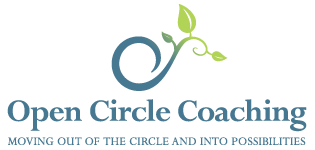Why Rejection at Work Hurts
August 30th, 2017 by Kelly Kienzle
Do you remember a time when you were turned down for a promotion? Or how about a time when you applied for a job that you felt certain was a perfect fit for your skills and experience, only to find out that you were not selected?
These times can sting and we know, on the surface, why it hurts. We don’t like being denied our dreams. But what is happening on a deeper level? Why does our self-confidence take a hit? If we can understand these questions, perhaps we can better control our reaction the next time we reach for something and get denied.
The Identity Problem
The reason we get thrown off by rejection is that suddenly we are face-to-face with an identity problem. We thought we were a certain type of person – – the type of person that deserves that promotion or the type of person who is a great fit for that role. But then here comes a message that tells us we are, in fact, not that kind of person. Ouch. That hurts.
If we are not that person, then who are we? And now we launch into an existential tailspin questioning our other skills, characteristics and identities. Disconcerting self-talk arises that sounds like: “Well, maybe I’m not as good a fit for this company as I thought I was.”
Or maybe we even spin down further into the doom loop and question our other identities, “And maybe I’m also not as good a colleague/parent/friend as I thought either.”
Why do we let this happen? Why do we allow the decisions of others to impact our identity? Well, because we want to be connected to reality. We want to know how we are perceived so that our self-perception aligns with how others see us.
Take What You Need – – Leave the Rest
So how do we treat this painful information that conflicts with our perception of ourselves? The answer: We take what we believe to be true. If we take only what we perceive to be true and accurate about ourselves, then we remain in control of shaping our identity. If we take only what we perceive to be true, then we are agreeing that parts of the judgment may be helpful to understand how others perceive us.
But we do not take the whole judgment. We control the floodgates on this one. We take a dry-eyed look at ourselves and determine what we want to take from this rejection. And we leave the rest.
Be in control of how you define yourself. Allow judgments from others, but only open the gates enough to let your vision of the truth flow in. Strike a balance between being aware of other’s perceptions while maintaining your own vision of yourself. We may be shaped by others, but we are not defined by them.





